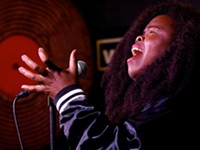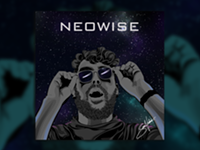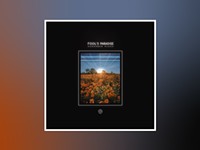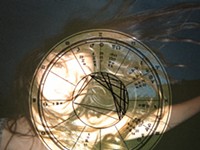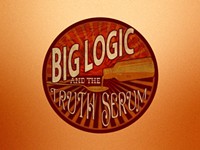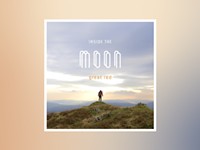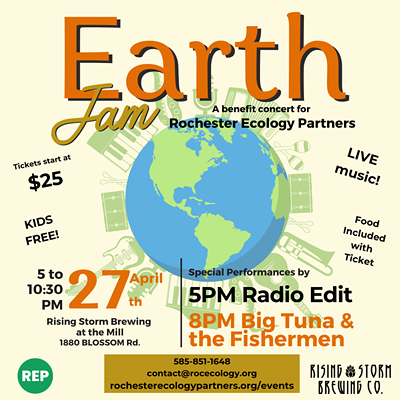[
{
"name": "500x250 Ad",
"insertPoint": "5",
"component": "15667920",
"parentWrapperClass": "",
"requiredCountToDisplay": "1"
}
]
Ocupanther is bold; a brash and brilliant example of ethereal pursuit with organic tools. Emerging from the ashes of Pia Mater, Ocupanther is guitars in space, rock 'n' roll on the dance floor — a tug-o-war that hammers your head and hits your hips. The big, big sound out of this three-year-old Rochester quartet — Collin Jones, guitar and synthesizer; Mike Pantano, guitar; Jason Gilly, bass; and Matthew Blauvelt, drums — has melded music from different genres, eras, and approaches to create a new contagion of danceable ambiance and rock grit. On its third album, "Data Stretching" (released last September), the band moves from a cyborg prom soundtrack to a laid back, funky cool (kind of how I envision disco if cocaine had never been invited to the party). Some of the songs exhibit a protracted intro to their varied grooves that grow from a standard hook into a kind of epiphany. It smacks smooth and gloriously disjointed.
Jones and Pantano swung by City HQ to discuss improv, preaching to the converted, and to explain what an ocupanther really is. Here are the Q's and A's.
City Newspaper: So Ocupanther wasn't just picking up where Pia Mater left off?
Collin Jones: We wanted to do something completely new and different.
What did you set out to do?
Jones: We kind of let it take a form of its own. But loosely we discussed it. We wanted it to be instrumental, we wanted to focus on the parts that were most pleasing to listen to.
The words got in the way?
Jones: I don't know; none of us were really strong vocalists.
So in other words, nobody wanted to sing.
Mike Pantano: Once we started writing Ocupanther music, it became its own beast, pretty much. It seemed tough to put vocals into some of our stuff. We were writing such intricate and unique stuff we wouldn't have even known what to do with vocals.
The arrangements were too complicated?
Pantano: Oh yeah, there is a lot of structure in them.
So where does the improv come in?
Pantano: Live, and definitely a ton of improv goes on at rehearsal.
Jones: We write out of improv. On our records we have points of improv. I would say that 80 percent of our music are structured-out compositions. In Pia Mater we had those points of improv in our songs and those were always the most enjoyable to play and the most pleasing to our ear. So we said let's just play that good stuff and focus on that ... keeping in mind balance; balance is important.
So you write the framework of the song loosely?
Pantano: First comes the structure, then the jam spot — or not — and when that jam spot comes, a lot of it is off the feel of the crowd or how we're playing that night. Sometimes it's intense, sometimes it's more laid back. It's different each time.
Jones: With Mike and me, our guitars have a constant dialogue going on.
Pantano: I'm listening to him more than anything. If that beat's there, it's subconscious.
You still are able to embrace more conventional tunes with beginnings, middles, and ends, right?
Jones: we definitely have songs that we play straight through, the same way each time, with small embellishments. They just speak out on their own, they don't need anything else. The way we build music is we throw around ideas until there is equal balance between the three of us. Usually it's unanimous.
In the span of three Ocupanther albums, how has the sound evolved?
Jones: The first one was a lot more jagged.
How has the sound remained the same?
Jones: I think our music has always been cerebral, we try to reach out beyond. That's always been our goal and I don't think that's changed.
Beyond yourselves? Beyond your audience?
Pantano: Maybe beyond music in general, beyond what people are used to hearing. We want them to spend as much time thinking about it as we do writing it.
Which do you prefer: an audience that gets what you're doing right away, or one that doesn't, that you ultimately convert?
Pantano: I think we've done a lot of converting since we started.
Jones: That's really satisfying to see people open up to something new. And that's really hard today because there are a thousand bands and a million people trying to do something.
Has fusing organic and ambient sounds made Ocupanther different?
Jones: The idea of fusion has always been big in our music.
Perhaps a little confusion as well?
Jones: No ... well maybe a little confusion where in the moment you're confused, but afterwards you digest it and it turns into understanding or enlightenment.
What exactly is an ocupanther?
Jones: A creature we came up with to describe our music. It's mysterious and mythological. It's with one "c" — ocu as in ocular not occupy.
Are you the ocupanther, or are you trying to control it?
Pantano: I think it controls us.

